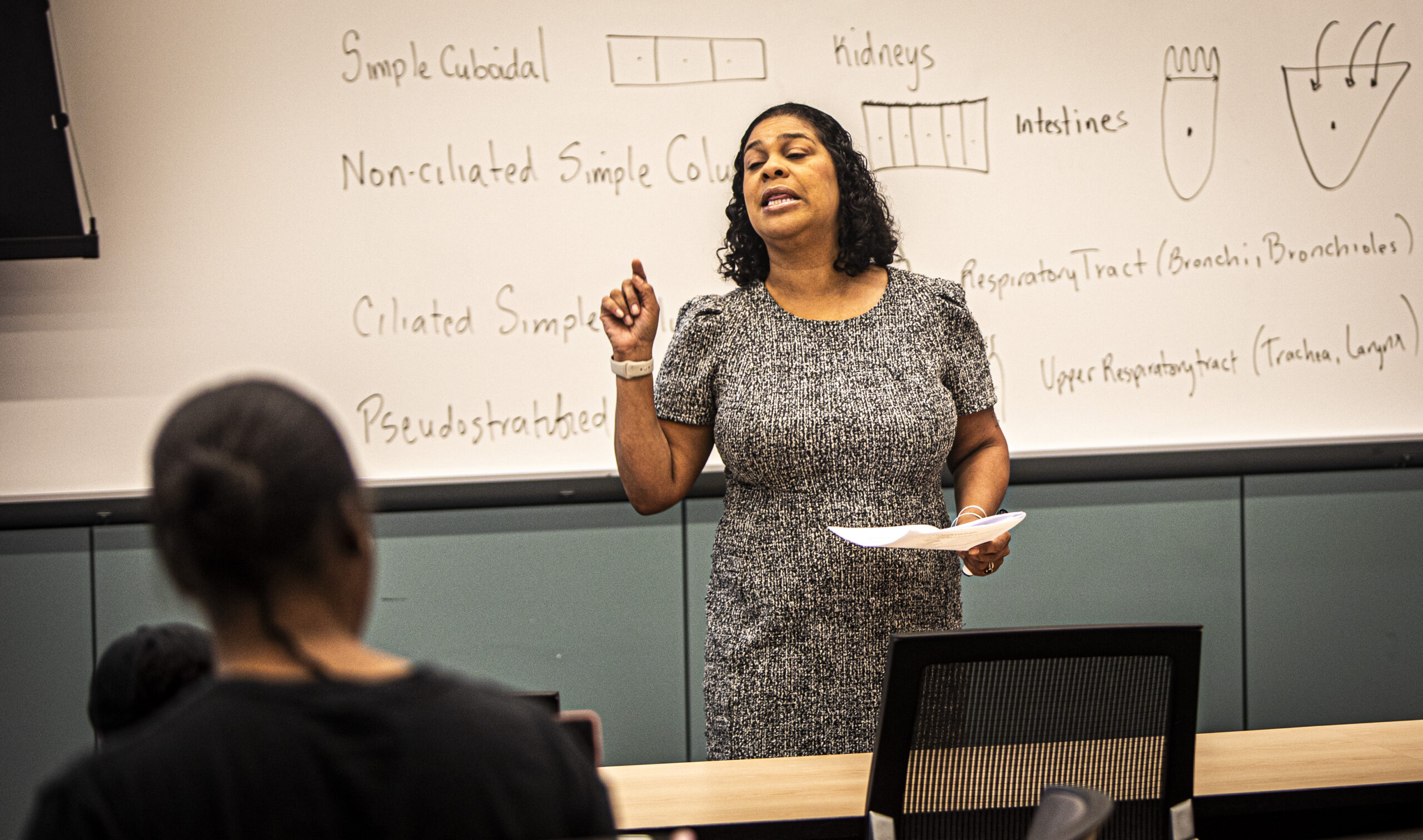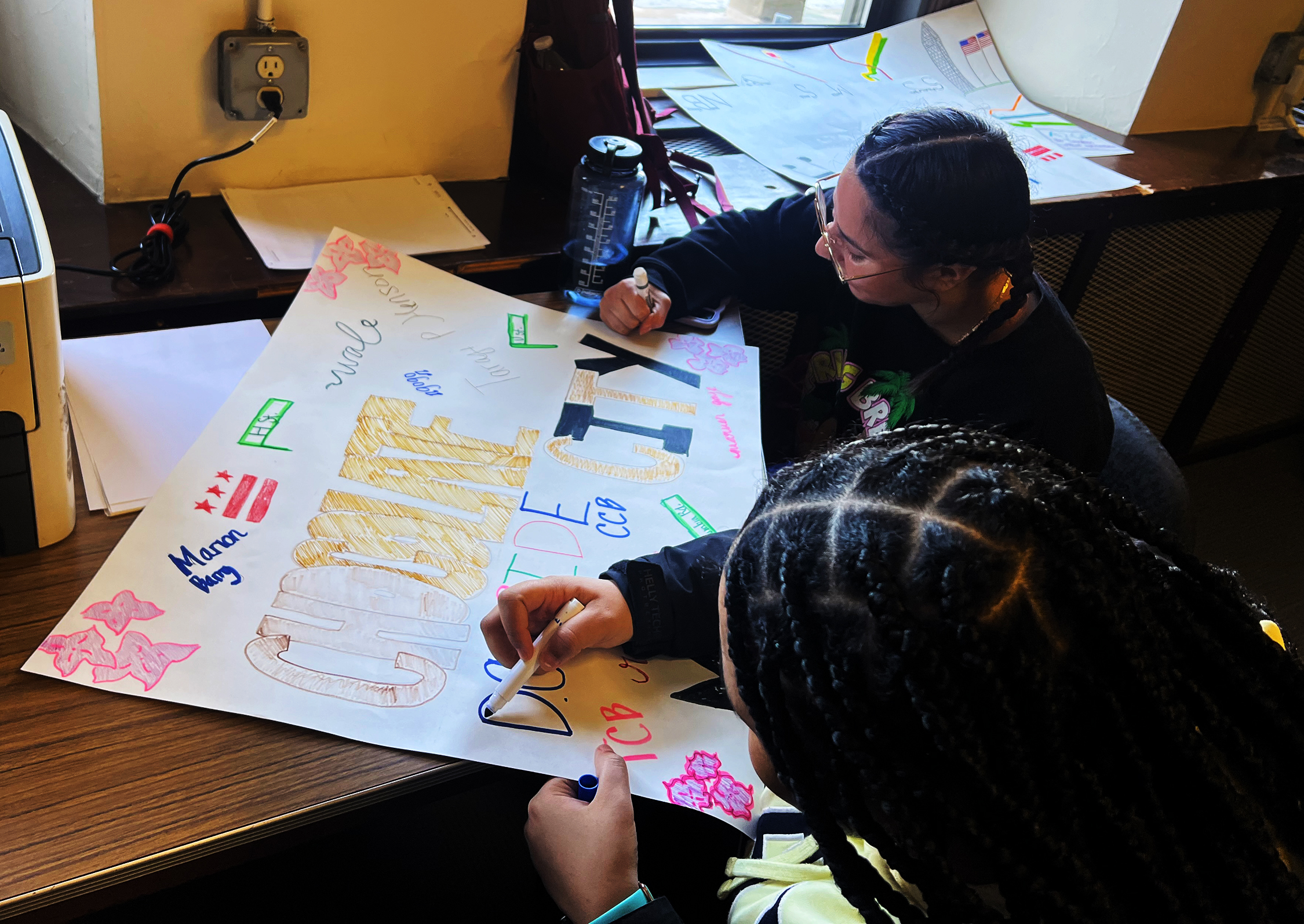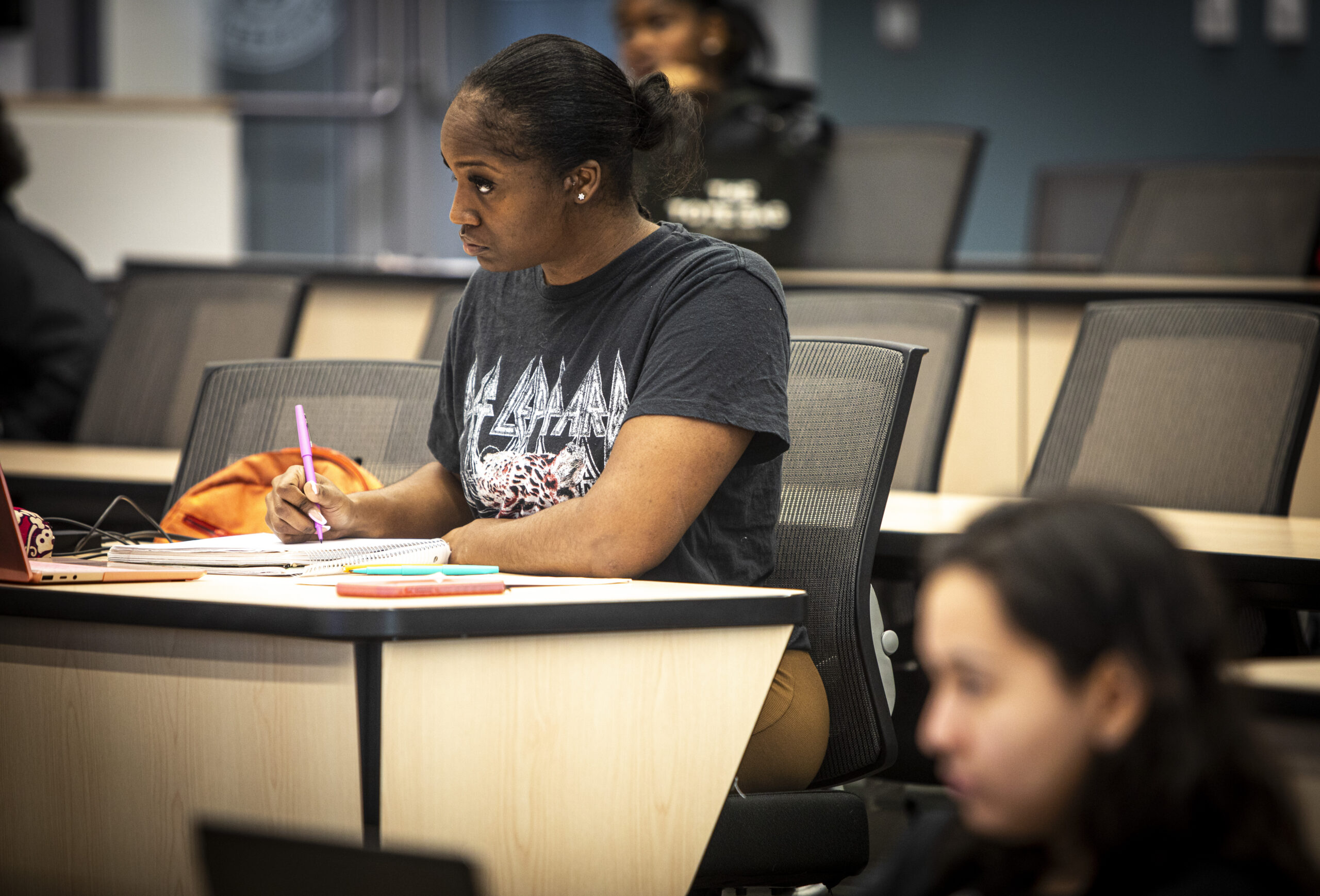
By Nina Payne
Trinity Times Correspondent
As politicians throughout the U.S. move to restrict diversity, equity and inclusion programs in colleges and universities, preparations are being made at Trinity Washington University to stay ahead of the conversation around DEI with a forum for faculty and students sometime in the future.
The aim for Trinity’s forum is to explore ways in which the university can further tackle the persistent issue of racism in higher education and counter what appears to be a movement to eliminate diversity, equity, and inclusion initiatives at other academic institutions.
“Higher education has been an engine of equal opportunity and racial progress in the United States for decades,” Trinity President Patricia McGuire said. “While all universities, including Trinity, can do even better on racial justice, the fact of the matter is that few places in this country are as open and ardent about principles of equity and justice as colleges and universities.”
Members of Trinity’s faculty have been alarmed about challenges to DEI programs in U.S. colleges in recent years, most notably in Florida, and called for a forum to openly discuss the issue more broadly by organizing the event, most likely in the fall.
“We can and should have the uncomfortable and challenging conversations,” McGuire said, noting such discussions can become fraught with tension.
However, she said Trinity’s founding history places social justice as a central mission, principle, and moral value, which is why the university is beginning to organize this forum and perhaps serve as an example to other institutions of higher education.

The Civil Rights Movement in the 1960s profoundly influenced the initial discussions regarding diversity and inclusivity in higher education.
During this period there was a concerted effort to advocate for equal educational opportunities for marginalized communities, such as African Americans, women, and other underrepresented groups.
U.S. colleges and universities were required to be integrated following the Supreme Court’s landmark decision in Brown v. Board of Education in 1954.
During the 1960s and 1970s, numerous universities and colleges introduced affirmative action policies to foster diversity and rectify past inequities.
These initiatives sought to boost the presence of historically marginalized groups in admissions, employment, and various aspects of campus engagement.
In 1968 San Francisco State College was the first U.S. college to create a Black Studies department, thus DEI in U.S. higher education was born.
In the latter part of the 20th century and continuing into the 21st century, colleges and universities increasingly solidified a dedication to diversity, equity, and inclusion by setting up specialized offices, programs, and initiatives.
These endeavors encompassed the recruitment and retention of diverse faculty and staff, the integration of multicultural curricula, and the development of support services for underrepresented students.
Today, DEI plays an essential role in creating an inclusive university environment.
Despite the advancements achieved by affirmative action and other DEI endeavors, legal challenges have arisen against these initiatives, particularly concerning admissions policies grounded in race and ethnicity.
Last June the U.S. Supreme Court struck down affirmative action in higher education admissions in a 6-3 decision, stating that race cannot be a consideration and compelling colleges and universities to explore alternative methods to foster diverse student populations.
This ruling came at a time when the debate about DEI initiatives in higher education was coming to a boiling point and it continues to be the subject of controversy.
Some contend that these initiatives are crucial for fostering diversity and tackling systemic inequalities, while others view them as instances of “reverse discrimination” or advocate for color-blind policies.
Recent political and social movements have amplified these discussions, resulting in heightened examination of DEI initiatives within college settings.
Institutions such as the University of Missouri and the University of Kentucky have already announced an end to race-based scholarships, and Texas Gov. Greg Abbott signed a bill last summer that prohibits all DEI offices in state colleges and universities beginning this year.
The obliteration of DEI programs in colleges and universities throughout the country highlights a problem that institutions of higher education like Trinity should be discussing, said Jamal Watson, the university’s associate dean of Professional and Graduate Studies, who is helping to organize the school’s forum.
The forum will provide and explain frameworks regarding Critical Race Theory and DEI, Watson said, adding that it will allow the Trinity community to have a better understanding of what is at stake.
McGuire said that this forum will be a two-hour late afternoon session with a keynote speaker and participation of faculty, students, and alumni.
It will serve as a space for everyone to feel included and break out in small group dialogue, she said.
Though this forum will be a single event, the topic will continue as an ongoing conversation at Trinity, McGuire said.
These issues of DEI, CRT and affirmative action are political, Watson said, “and they are meant to set us back.”
It is an attempt to keep people separate and prevent people of color from higher education, he said.

The movement to eradicate DEI from institutions of higher education is an attempt to prove that racism in the U.S. no longer exists, he said, adding that college professors have a responsibility to show their students the evidence of historical and continued racial inequality.
“It is the responsibility of faculty and administrators to integrate conversations around DEI into the classroom,” Watson told Trinity Times. “Students should be actively trying to understand the issues at stake.”
Trinity senior Myia Toney has been actively following the political storm surrounding the push against DEI programs in higher education and is relieved to hear about the university’s planned forum on the topic.
“It is imperative that Trinity holds a conversation addressing DEI as well as CRT,” Toney said. “These are two important topics that heavily impact the student body, not only in the classroom, but in everyday life.”
DEI and CRT programs in universities not only educate students about systemic racism in education, health care, housing, and the criminal justice system, those studies can be a tool in dismantling those practices and laws, she said.
In addition to the upcoming forum, Watson has urged Trinity to consider establishing a DEI office in the future.
The threats against DEI have only begun, McGuire has warned, and said the political debate surrounding it creates a disruptive discourse amongst universities.
The movement against DEI is also an assault on academic freedom and free speech, she said, adding that she believes these attacks are clearly racism in action and efforts to control and manipulate what students learn.
In McGuire’s view there is a very clear effort in some states for governors and legislatures to take over public colleges and universities so that they can control what is taught, who teaches, what students read and learn.
“The rising force of anti-DEI activists,” she said, “are challenging some of the most fundamental pillars of our work, notably, racial equity and social justice.”